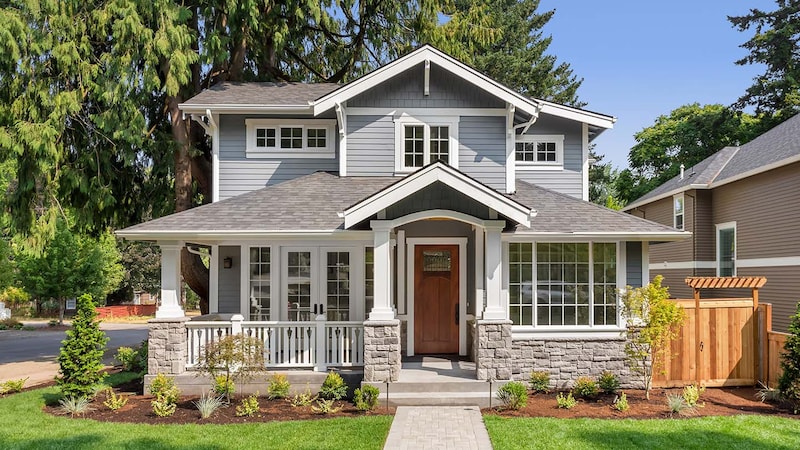What to consider when applying for a VA loan

VA loans are a partially guaranteed loan program from the Department of Veterans Affairs (VA) to help current and past veterans and their spouses finance a primary residence. If eligible, VA loans can help you start your homebuying journey. Read on for information on how you might qualify, the different types of VA loans available and the pros and cons of a VA loan.
What is a VA loan?
A VA loan is partially guaranteed by VA and provided by private lenders, such as banks and mortgage companies and is available for current servicemembers, veterans and their spouses. They often have lower interest rates and often don’t require a down payment. VA loans started during WWII to help veterans get reacclimated to society after coming home from war, or to help spouses who lost their partners. There are certain criteria you must possess to qualify for a VA loan.
How do I qualify for a VA loan?
To qualify for a VA loan, you must be an active-duty servicemember, veteran or eligible surviving spouse. See below for specific criteria:
- You meet the minimum active-duty service requirementOpens overlay or are an eligible veteran.
- Your spouse was a Veteran that passed due to their service (other eligibility requirements may apply and the VA will make the final determination).
- The property you’re looking to buy meets the standards and codes of the VA loan.
- The lender approves your income and credit for their personal VA loan requirements. Ask your lender for these details.
Although the VA does not require a specific income level or credit score, your lender might. To apply for a VA loan and verify eligibility, you’ll need to obtain a certificate of eligibility. You can get this through your lender or from the VA itself.
Types of VA loans
There are a few ways you may be able to use a VA loan. Below are examples from the official VA website:
- Purchase loan. A purchase loan is a VA partially guaranteed mortgage that helps you buy a house and may provide you with better terms than you’d get with a conventional loan.
- Interest Rate Reduction Refinance Loan (IRRRL). IRRRLs are for those who already have a VA guaranteed loan and are looking to refinance to a lower rate.
- Cash-out refinance loans. Cash-out refinance loans allow qualified servicemembers or veterans to cash out on their home equity. Like a traditional cash-out loan, you can use this transaction to fund other life expenses or home updates, or to refinance an existing non-VA mortgage.
Benefits of VA loans
There are many advantages associated with using VA loan assistance.
Competitive interest rates
Since a VA loan is partially guaranteed by VA, there’s less risk for the lender. Because of this, interest rates may be lower than interest rates on conventional mortgages.
Little to no down payment
While most conventional and FHA loans usually require a minimum down payment, VA loans may not require one.
Overall fewer closing costs
Overall, you’ll find fewer closing costs with VA loans than with standard conventional or FHA loans. You won’t need private mortgage insurance (PMI) or a monthly mortgage insurance premium, and since the amount of closing costs you can pay is capped, you likely won’t have as many closing costs as you would with a conventional or FHA loan.
Disadvantages of a VA loan
Like any home loan, there are some disadvantages to VA loans.
Funding fees
You may be required to pay a funding fee if the VA does not determine you to be exempt. Exempt status is determined by the VA (receipt of VA disability compensation, for example) and confirmed through the certificate of eligibility obtained directly from VA. This one-time fee, which is eligible to be financed as part of your loan in most instances, is paid directly to the Department of Veterans Affairs and is currently set at a maximum of 3.30%.
Home requirements
Similar to conventional and FHA loans, there are minimum property requirements a home must meet in order to qualify for a VA loan.
Primary residence
VA loans, other than an IRRRL, can only be used on a home that will serve as your primary residence. This means you can’t use it on an investment property, a second or rental home. Although, you may be able to use a VA loan on a subsequent home if you’ve paid off your original primary residence and intend on making this subsequent home your new primary residence.
If you find yourself eligible, VA loans are a great option when looking to buy, refinance or receive cash out from your primary residence. Check with your Home Lending Advisor today to see if a VA loan is right for you.



